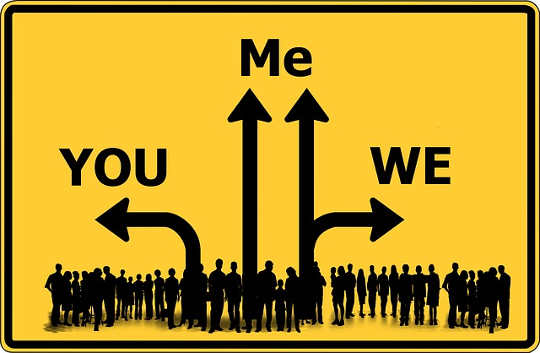
Endowing people with social power inflates the socially-toxic component of narcissism called exploitation and entitlement, according to new research.
Until now, the assumption was that narcissists tended to clinch powerful positions for themselves. However, recent research suggests that power itself may create narcissists.
“While power doesn’t turn everyone into a destructive tyrant, it has pernicious effects when it gets into the hands of those who want it most…”
“Narcissists can feel a sense of entitlement—they expect and demand respect from others as well as special privileges,” says Nicole Mead, associate professor in the management and marketing department in the faculty of business and economics at the University of Melbourne. “They are willing to exploit others to get what they want.”
Give them power and those people can turn into oppressors and bullies.
“While power doesn’t turn everyone into a destructive tyrant, it has pernicious effects when it gets into the hands of those who want it most,” says Mead. “Power increased narcissism only among those with high-baseline testosterone—people who want to achieve and retain positions of power.”
Mead, a social psychologist, delved into the relationship between power and narcissism in part to help explain the socially toxic behaviors of powerful people, which she saw as resembling narcissistic behavior.
“Those who enjoy power try to keep it even at the expense of others,” she says.
Testosterone testing
To test their theory that social power inflates narcissism among people with high testosterone, Mead and her colleagues recruited 206 men and women. They took saliva samples from each participant and told them they were joining in a team dynamics study.
The researchers asked each person to complete tasks framed as measures of leadership abilities. All participants were told they achieved the best leadership score but only half of participants were told they would be “boss” of a group task. This meant they could control their subordinates and the rewards associated with the group task. The other half were told they had equal control over the same task.
The researchers assessed narcissism using the most commonly used measure of narcissism, the Narcissistic Personality Inventory. They measured corruption with a scale that taps into people’s willingness to misuse their power.
Because men have higher testosterone levels than women, the researchers standardized testosterone levels within each sex. This means the researchers were able to examine how people react to power when they have relatively high or low testosterone levels for their sex.
The study shows that men and women with relatively low baseline testosterone don’t become narcissists when in a position of power.
However, those who have relatively high testosterone levels show an increase in the exploitative-entitlement component of narcissism when they gain power. Increased narcissism in turn explained their enhanced willingness to misuse their power.
Power and corruption
“Power is an essential component of social life,” Mead says. “Although the corrupting nature of power has been noted for centuries, the way it changes how people see themselves in relation to others remained an enigma. We thought narcissistic self-views may be a missing piece of the puzzle for understanding how power corrupts.”
The results of the study suggest that people with high testosterone may be inclined to misuse their power because having it over others makes them feel entitled to special treatment.
“This research is some of the first to look at factors that fuel the rise of narcissism and to pinpoint the change in self-views that can explain the corrupting influence of power,” says Mead.
“Moreover, the work shows that the destructive effects of power were not due to narcissistic feelings of superiority but rather narcissistic feelings that one is special and should be treated accordingly. Feelings of exploitation and entitlement may help those who crave power to retain a power gap between themselves and others.”
When scanning the workplace for pro-social leaders, it’s optimal to look for “actual signs of talent, competence, and skill rather than people who brag that they have those skills,” says Mead.
So, beware the boss who trumpets themselves, acts with an air of domination, or feels entitled to take your chair in a meeting—they may be poised to unleash their inner, lurking narcissist.
The research appears in the Journal of Experimental Psychology: General.
Source: Linda McSweeny for University of Melbourne
Related Books:
The Narcissist Next Door: Understanding the Monster in Your Family, in Your Office, in Your Bed-in Your World
by Jeffrey Kluger
In this provocative book, bestselling author and science writer Jeffrey Kluger explores the fascinating world of narcissism, from the everyday to the extreme. He offers insight into the narcissistic personality and how to deal with the narcissists in our lives. ISBN-10: 1594633918
Click for more info or to order
The Covert Passive-Aggressive Narcissist: Recognizing the Traits and Finding Healing After Hidden Emotional and Psychological Abuse
by Debbie Mirza
In this insightful book, psychotherapist and author Debbie Mirza delves into the world of covert narcissism, a hidden form of emotional and psychological abuse. She offers practical strategies for recognizing the traits of covert narcissism and finding healing from its effects. ISBN-10: 1521937639
Click for more info or to order
The Narcissistic Family: Diagnosis and Treatment
by Stephanie Donaldson-Pressman and Robert M. Pressman
In this seminal work, family therapists Stephanie Donaldson-Pressman and Robert M. Pressman explore the dynamics of the narcissistic family, a dysfunctional system that perpetuates narcissism across generations. They offer practical advice for diagnosing and treating the effects of narcissism in families. ISBN-10: 0787908703
Click for more info or to order
The Wizard of Oz and Other Narcissists: Coping with the One-Way Relationship in Work, Love, and Family
by Eleanor Payson
In this enlightening book, psychotherapist Eleanor Payson explores the world of narcissism in relationships, from the everyday to the extreme. She offers practical strategies for coping with the one-way relationship and finding healing from its effects. ISBN-10: 0972072837

























